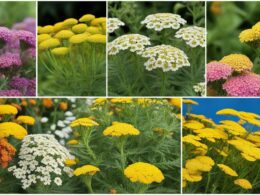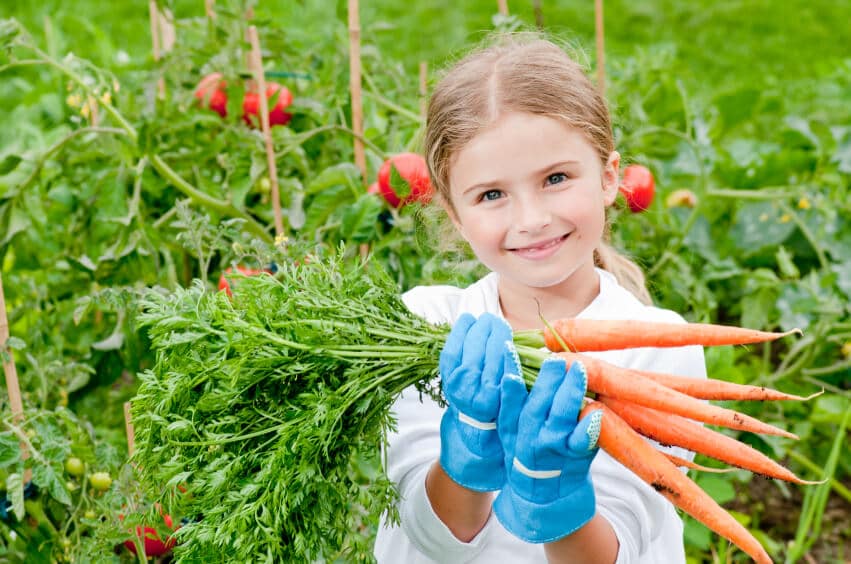Are you struggling to keep your garden or lawn healthy and green? One of the most important nutrients for plant growth is nitrogen, and maintaining the right levels can be crucial for a thriving garden. But with so many methods for adding nitrogen to soil, it can be overwhelming to know where to start.
That’s why we’ve put together this quick-reference guide with tips for boosting your garden’s growth and keeping your plants healthy and happy. In this article, we’ll explore why nitrogen is so important for plant growth and how to test and balance nitrogen levels in your soil. We’ll also share natural and inorganic ways to add nitrogen to the ground, from composted manure and coffee grounds to pre-made fertilizers and fish tank water.
By following these tips, you can ensure your garden is getting the nutrients it needs to flourish, all while maintaining safe nitrogen levels for your plants and the environment. So let’s get started on your journey to a lush and thriving garden!
Quick Summary
- Nitrogen is crucial for healthy plant growth, but levels must be kept in balance to prevent problems.
- Natural ways to add nitrogen to soil include composted manure, planting beans or peas, adding coffee grounds, and leaving fresh clippings on the lawn.
- Inorganic fertilizers with nitrogen are available in various forms, including dry, granular, water-soluble, and slow-release.
- Soil testing kits are important to monitor nitrogen levels and prevent environmental damage from excessive nitrogen.
Why Nitrogen is Important
You need to understand why nitrogen is so important for your plants to grow strong and healthy. Nitrogen is the primary nutrient that plants need to produce chlorophyll, which allows them to photosynthesize and grow. Without enough nitrogen, your plants may appear stunted, with small leaves and yellowing or browning patches.
But while nitrogen is essential for plant growth, it’s important to be mindful of its impact on the environment. Excessive nitrogen can lead to environmental problems such as algae blooms and the choking out of fish and other life forms in waterways.
That’s why it’s important to keep nitrogen levels in balance and use fertilizers, whether organic or inorganic, in moderation to promote healthy plant growth without harming the environment.
Methods for Adding Nitrogen
One way to naturally increase nitrogen levels in the soil is by adding composted manure to your garden beds. Composting techniques help break down animal waste, such as cow, chicken, or horse manure, into a nitrogen-rich soil amendment that can provide essential nutrients to plants. Composting can be done in a bin or pile, and requires mixing brown and green organic matter, such as leaves, twigs, grass clippings, and food scraps, to create a balanced environment that promotes decomposition.
Once the composted manure is ready, it can be spread on your garden beds and worked into the soil to improve its fertility. Another method for adding nitrogen to your garden is by planting nitrogen-rich plants. Legumes, such as beans, peas, and lentils, are known for their ability to fix nitrogen in the soil by forming a symbiotic relationship with soil bacteria.
These plants can increase soil nitrogen levels while also providing a source of protein for human consumption. Other nitrogen-rich plants to consider include alfalfa, clover, and vetch, which are commonly used as cover crops to protect and improve the soil between growing seasons.
By incorporating these plants into your garden rotation, you can help maintain healthy soil and promote strong, productive plant growth.
Can Adding Nitrogen to Potting Soil Help with Year-Round Success?
Adding nitrogen to potting soil can indeed be beneficial for year-round success. Nitrogen is an essential nutrient that promotes healthy plant growth and enhances overall soil fertility. When used properly, it can contribute to stronger plants, increased yields, and improved resistance to diseases. To ensure optimal results, it’s crucial to follow recommended potting soil storage tips, as they can help maintain the quality and effectiveness of the added nitrogen for future use.
Natural Sources of Nitrogen
Composted manure, planting nitrogen-fixing plants, and leaving organic matter to decay on the ground are all great ways to naturally increase soil nitrogen levels. These methods provide a safe and sustainable way to add nitrogen to your garden without the use of harmful chemicals. Plus, they have added benefits that can improve your soil’s overall health and fertility.
Here are five reasons why natural sources of nitrogen are the way to go:
-
Composted animal waste is an excellent source of nitrogen and other essential nutrients for your plants. Plus, composting the waste reduces the risk of harmful pathogens and makes it safe for use in your garden.
-
Nitrogen-fixing plants like beans and peas can add nitrogen to your garden by converting atmospheric nitrogen into a form that plants can use. These plants also have the added benefit of improving soil structure and fertility.
-
Leaving organic matter to decay on the ground can help improve soil health by adding nutrients and improving soil structure. This method is also environmentally friendly and helps reduce waste.
-
Coffee grounds are a great source of nitrogen and other essential nutrients for your plants. Plus, they can help improve soil structure and water retention.
-
Composting animal waste properly is essential to reduce the risk of harmful pathogens and make it safe for use in your garden. Proper composting involves creating the right balance of carbon and nitrogen, maintaining proper moisture levels, and turning the compost regularly to ensure proper decomposition.
Maintaining Safe Nitrogen Levels
To maintain safe nitrogen levels, it’s important to regularly test the soil and adjust nitrogen applications accordingly. Soil testing kits are readily available and can provide accurate measurements of nitrogen levels in the soil. Once you have determined the nitrogen levels, you can decide whether to add more nitrogen or to hold off on any further applications.
Remember, too much nitrogen can be harmful to plants and the environment, so it’s essential to keep the nitrogen levels in balance. In addition to testing soil regularly, it’s also crucial to understand the nitrogen cycle.
By leaving plant matter to decay naturally, you can help replenish nitrogen levels in the soil. Composting animal waste and using it as a natural fertilizer is also an excellent way to maintain safe nitrogen levels.
By following these simple steps, you can ensure that your garden thrives without causing harm to the environment.
Frequently Asked Questions
How often should nitrogen be added to soil for optimal plant growth?
For optimal plant growth, apply nitrogen to soil based on plant variety, soil type, and weather conditions. Frequency of nitrogen application depends on specific nutritional needs. Nitrogen sources for soil enrichment include organic and inorganic fertilizers, compost, and natural methods.
Can adding too much nitrogen to soil harm plants or the environment?
Adding too much nitrogen to soil can harm plants and the environment. The Pros and Cons of Nitrogen Fertilizers must be balanced, or high levels can damage plant growth and cause algae blooms. Nitrogen runoff can also harm water systems.
Are there any plants or vegetables that require higher levels of nitrogen than others?
Some plants, like corn, lettuce, and tomatoes, require more nitrogen than others. Top nitrogen-rich plants include legumes, leafy greens, and brassicas. Nitrogen supplement options include organic fertilizers, composted manure, and planting nitrogen-fixing cover crops.
What is the best time of day to add nitrogen to soil?
For the best results, apply nitrogen in the morning. This gives plants the entire day to absorb it. Natural sources like composted manure or coffee grounds are safer than inorganic fertilizers.
How can you tell if your soil has a nitrogen deficiency or excess?
Detecting deficiency or excess of soil nitrogen levels can be done by using a soil testing kit. Balancing nutrients is key to nitrogen management in gardens. Keep levels safe for healthy plants.








